Appearance is just one of the reasons for choosing ceramic tiles for cladding your walls and floors, indoors and outdoors. In fact, ceramic tiles offer many advantages if compared to other materials. These advantages include their technical performance, their safety, the fact that they are environmental-friendly and easy to take care of.
-
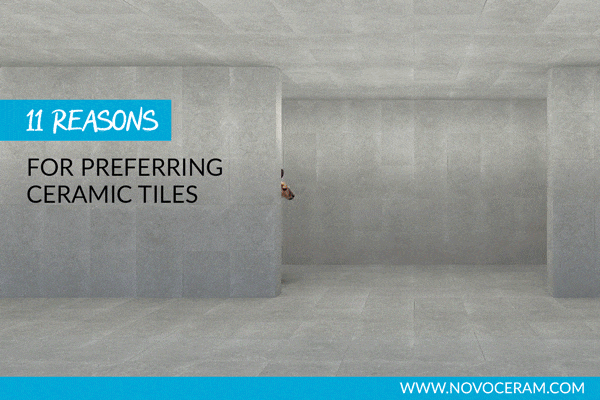 11 reasons for preferring ceramic tiles
11 reasons for preferring ceramic tilesChoosing a ceramic tile means choosing one of the most versatile, resistant and green materials available on the market, and it's easy to take care of too. It combines all these virtues with an unparalleled range of aesthetic effects. Amongst the many reasons for choosing ceramics, we have chosen eleven, which we believe deserve to be taken in account to better understand the great potential and to make your choice with no hesitation.
-
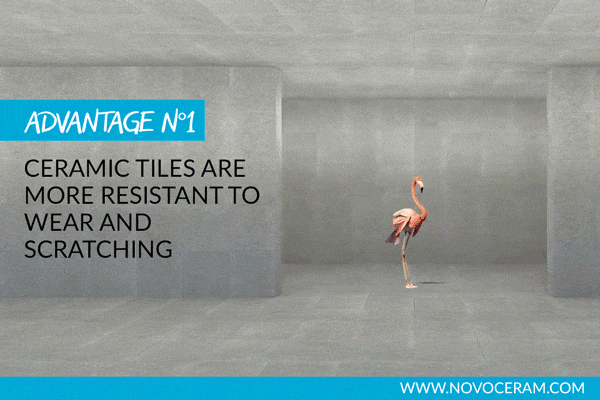 Ceramic tiles are more resistant to wear and scratching
Ceramic tiles are more resistant to wear and scratchingTiles produced using different technology - each within its scope of intended use (floors or walls, interiors or exteriors, for residential or commercial uses) - are amongst the most resistant materials to wear and scratching.
-
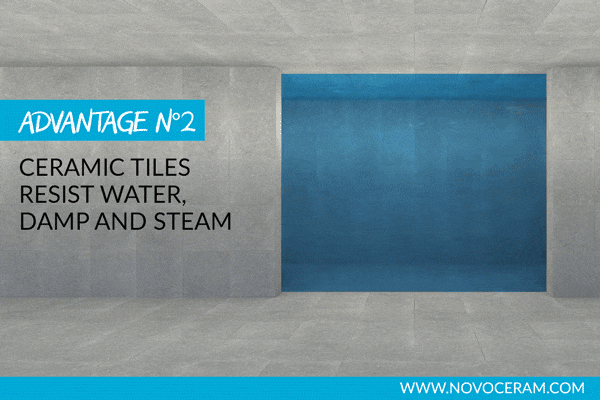 Ceramic tiles resist water, damp and steam
Ceramic tiles resist water, damp and steamCeramic tiles resist water, damp and steam: ceramic tiles can be installed in damp areas, such as kitchens, bathrooms, spas and even swimming pools.
-
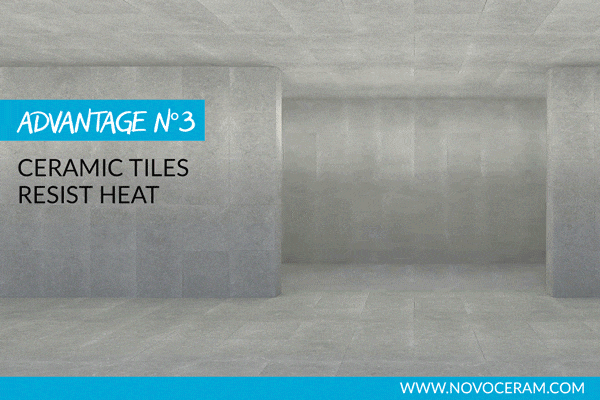 Ceramic tiles resist heat
Ceramic tiles resist heatCeramic tiles resist heat: ceramic tiles resist heat and direct flames perfectly since they are non-flammable and they do not emit, in the event of fires, harmful substances either for people or the environment. There is also no danger of them blackening further to contact with hot objects.
-
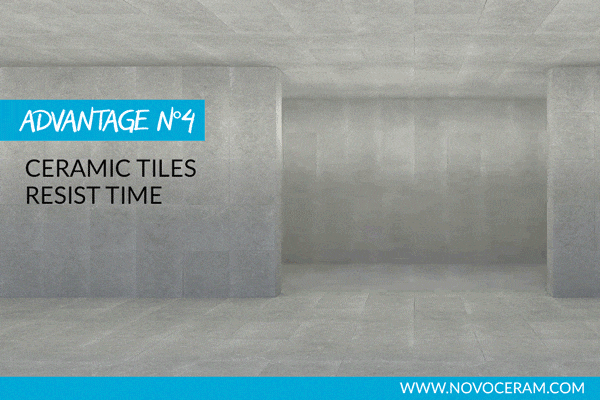 Ceramic tiles resist time
Ceramic tiles resist timeCeramic tiles resist time and are virtually unalterable: ceramic is an extremely resistant material that remains unchanged and does not deteriorate as time goes by. Ceramic tiles do not fade or darken, they are colourfast and their finish remains as it is, even in the event of long exposure to UV rays.
-
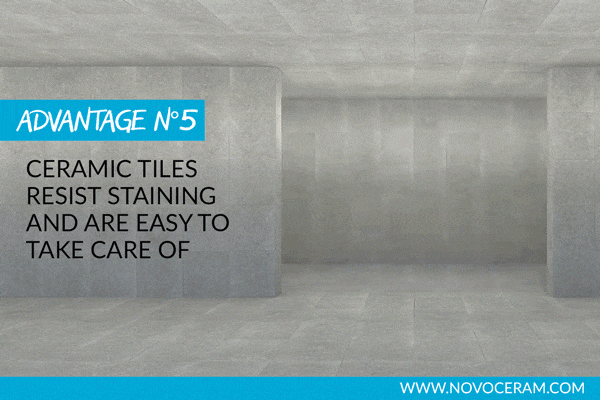 Ceramic tiles resist staining and are easy to take care of
Ceramic tiles resist staining and are easy to take care ofCeramic tiles are hygienic, they do not stain and they are easy to take care of. Ceramic does not facilitate the development of bacteria, does not deteriorate, is waterproof, non-absorbent and is one of the easiest materials to clean and disinfect. Ceramics resist virtually any type of chemical. Daily cleaning can be performed using only warm water.
-
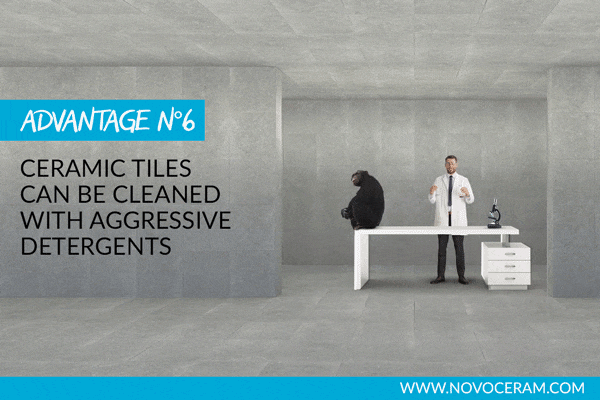 Ceramic tiles can be cleaned with aggressive detergents
Ceramic tiles can be cleaned with aggressive detergentsCeramic tiles can also be cleaned using aggressive products or treatments: as far as routine cleaning is concerned, warm water is sufficient. However, if deep-down cleaning becomes necessary, it is possible to use aggressive detergents or strong cleaning methods, such as for instance high-pressure cleaners or brushes, without any risk of damage.
-
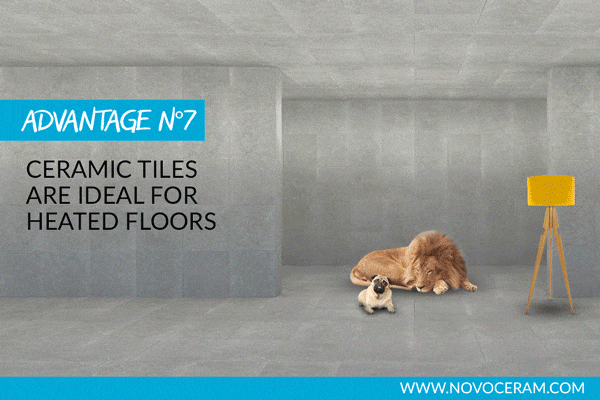 Ceramic tiles are ideal for heated floors
Ceramic tiles are ideal for heated floorsCeramic tiles are ideal for heated floors or walls: the great heat conductivity of ceramic tiles allows for an excellent performance of heating systems. This performance is much higher than that obtained using other insulating materials, which tend to create a barrier to the passage of heat.
-
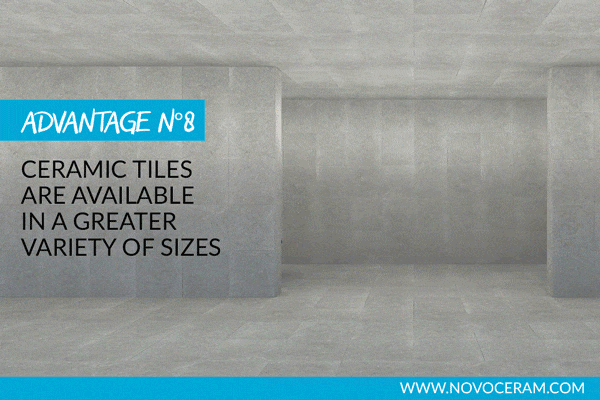 Ceramic tiles are available in a greater variety of sizes
Ceramic tiles are available in a greater variety of sizesCeramic tiles are available in a variety of sizes and shapes that is much greater than that of any other cladding material. They are also available in a wide assortment of accessories and trim pieces. Ceramics are so versatile that they fulfil any aesthetic and technical requirement. This is why they are the ideal choice for complete projects, even of a particularly complex nature.
-
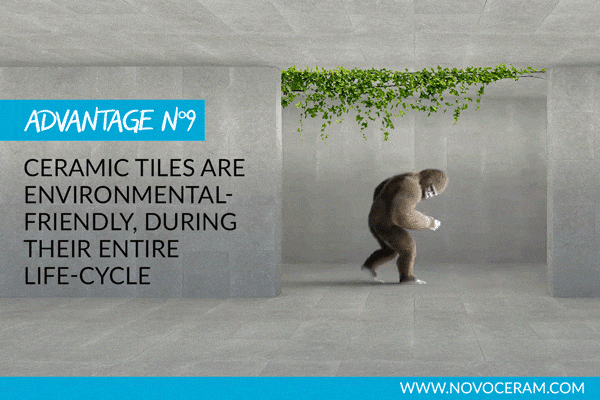 Ceramic tiles are environmental-friendly, during their entire life-cycle
Ceramic tiles are environmental-friendly, during their entire life-cycleCeramic tiles are environmental-friendly, during their entire life-cycle and respect the environment and your health: the production process of all types of ceramic tile is eco-compatible. Be even more demanding: always make sure that the tiles you purchase have all the environmental and quality certifications that guarantee compliance with the most stringent European standards.
-
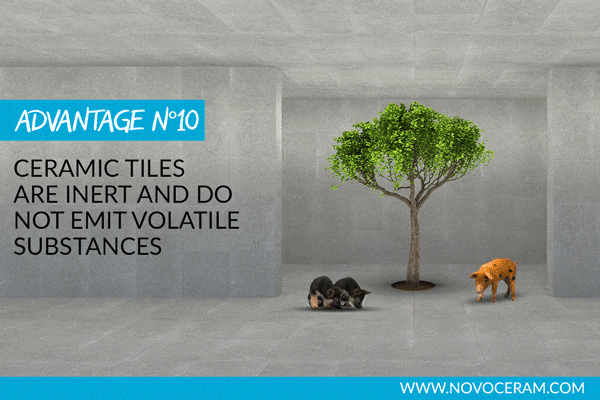 Ceramic tiles are inert and do not emit volatile substances
Ceramic tiles are inert and do not emit volatile substancesOwing to the nature of the materials used and to the production process, ceramic tiles do not emit VOC. They are totally inert: this means that - being incapable of reacting with any compound or chemical element - they will never produce substances that are potentially harmful for people or the environment either during installation, during their service life as floors and walls and during demolition and disposal.
-
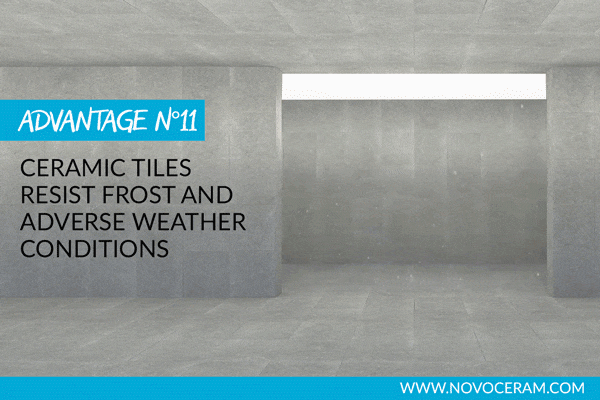 Ceramic tiles resist frost and adverse weather conditions
Ceramic tiles resist frost and adverse weather conditionsPorcelain stoneware tiles resist frost and adverse weather conditions and can be installed outdoors. Choose the right product for your intended use in terms of non-slip properties, thickness, finish and installation technique: you will never have to worry about chipping, breakage or other issues caused by frost and damp, which damage or reduce the life of many other materials.

 Listen
Listen




